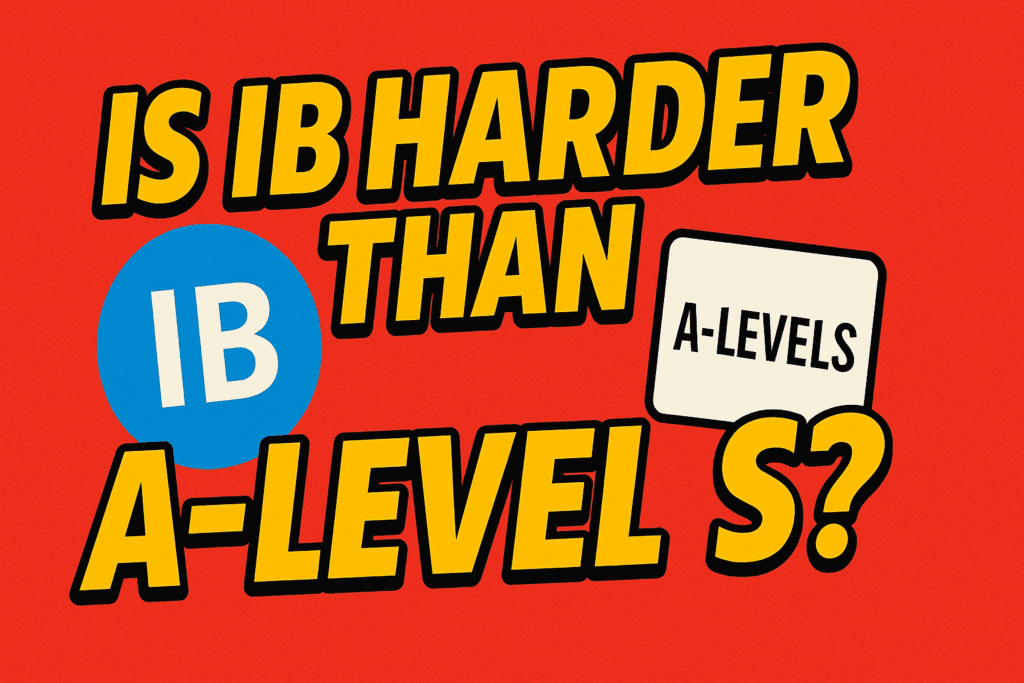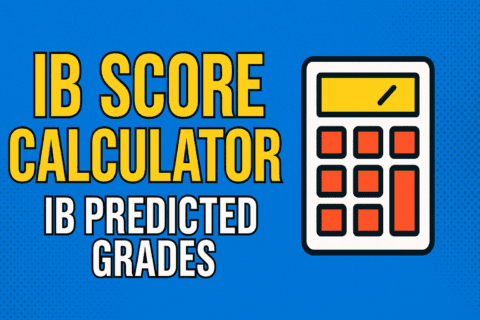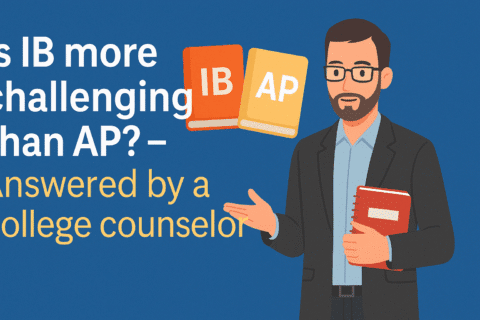Introduction
Choosing between IB and A-Levels is a big decision that can shape your academic path. It’s a question faced by thousands of students and families, particularly in regions like the UK, UAE, Singapore, and other international school systems. While both qualifications are respected and rigorous, they offer very different academic experiences.
In this guide, we’ll break down the structure, workload, and university recognition of each program to help you decide which is the better fit for your goals.
What Is the IB and What Are A-Levels?
Overview of the International Baccalaureate (IB) Diploma
The IB Diploma Programme is a two-year international education framework designed for students aged 16–19. It promotes a holistic and globally-minded education through:
Six subject groups: Language & Literature, Language Acquisition, Individuals & Societies, Sciences, Mathematics, and the Arts
Core components:
Theory of Knowledge (TOK)
Extended Essay (EE)
Creativity, Activity, Service (CAS)
Students are required to choose one subject from each group, ensuring a broad and balanced education.
Overview of A-Levels
Advanced Level (A-Level) qualifications are subject-specific courses typically taken in the UK and some Commonwealth countries over two years. Students usually choose 3–4 subjects aligned with their academic interests and future university courses.
A-Levels offer:
Specialization in fewer subjects
More time per subject, allowing for in-depth focus
Flexibility to tailor course combinations
Key Differences in Academic Structure
Subject Breadth vs Depth
IB: Broad coverage across six subjects encourages interdisciplinary thinking.
A-Levels: Focused depth in chosen subjects allows for mastery and specialization.
Assessment and Grading Style
IB:
Internal assessments + final exams
Global standardization in grading
Essay writing, oral exams, lab reports, and research components
A-Levels:
Primarily assessed through final written exams
Emphasis on analytical writing and problem-solving per subject
Workload and Time Commitment
IB:
Approx. 15–20 hours/week of study outside class
Core components (CAS, EE, TOK) require time management
Continuous assessments throughout the 2 years
A-Levels:
Time outside class varies depending on subjects
Less continuous assessment, more focus on revision closer to exams
Lower volume of subjects, but deep knowledge required
Which Is More Difficult: IB or A-Levels?
Both are academically challenging but in different ways:
IB can be more difficult for students who struggle with juggling multiple subjects and consistent deadlines. It requires strong organization and a broad academic interest.
A-Levels may be harder for those who prefer variety or find it difficult to focus intensively on fewer topics.
“IB was more intellectually demanding, but A-Levels felt more intense in the final stretch,” says an alum who completed both.
Difficulty also depends on learning style:
Holistic learners who enjoy connecting ideas across subjects may thrive in IB.
Students with a clear university path and passion for specific subjects may excel in A-Levels.
University Recognition and College Admissions
United Kingdom
Both IB and A-Levels are accepted for UCAS applications.
Oxbridge and Russell Group universities recognize the IB Diploma as equivalent to 3 A-Levels.
United States & Canada
IB may offer an edge due to its holistic and rigorous profile.
AP credit and subject SATs often complement A-Level qualifications for US admissions.
Europe & International
IB is widely recognized globally.
A-Levels are respected in the UK, some EU countries, and former British colonies.
Credit Transfer
IB graduates may receive credit or advanced standing at some US and Canadian universities.
A-Level students can also earn placement based on subject-specific performance.
IB vs A-Levels: Pros and Cons Table
| Feature | IB Diploma | A-Levels |
|---|---|---|
| Subject Scope | Broad (6 subjects + core components) | Focused (3–4 subjects) |
| Assessment Style | Coursework + final exams | Mostly final exams |
| Difficulty Level | High: balance + interdisciplinary depth | High: subject mastery required |
| Recognition | Globally accepted | UK and Commonwealth-focused |
| Ideal Learner | Curious, global thinker, time manager | Specialist, goal-oriented |
Who Should Choose IB or A-Levels?
Choose IB if:
You enjoy learning across multiple subjects
You want a globally recognized qualification
You’re aiming for international university applications
You excel at research and critical thinking
Choose A-Levels if:
You have a clear idea of your university major
You want to go deep in 3–4 subjects
You prefer fewer coursework requirements
You are applying to UK universities or Commonwealth countries
Frequently Asked Questions (FAQs)
Is the IB program more stressful than A-Levels?
Many students find IB more stressful due to its workload and continuous assessments, but this varies by learning style and school support.
Which is better for Oxbridge: IB or A-Levels?
Both are accepted. A-Levels allow specialization aligned with competitive course requirements, while IB showcases broader skills and research ability.
Do UK universities prefer IB or A-Levels?
They treat them equally in admissions. Offers are tailored to the grading system of each program.
Is IB more work than A-Levels?
Generally yes, in terms of breadth and time commitment. However, A-Levels may require deeper study in individual subjects.
Can you switch from IB to A-Levels or vice versa?
Yes, but it’s not always straightforward. The earlier the switch, the better. Speak with school counselors before making any changes.
Final Thoughts: IB or A-Levels?
There’s no universally “better” choice. It all comes down to your academic strengths, learning preferences, and future goals. Both qualifications open doors, but they take you down slightly different academic paths.





